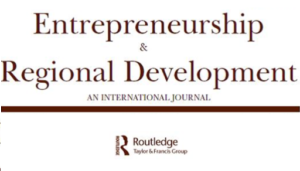Episode 97 – Andreas Giazitzoglu – Business in the backwaters: how ‘distance from the core’ impacts entrepreneurs’ lived experiences
Using a phenomenological approach, we analyse the voices of entrepreneurs living in the peripheral ecosystems of Newcastle Upon Tyne (UK), Palermo (Italy) and Perth (Australia). These ecosystems are defined by the considerable physical distance between their geographical location and the location of a larger, more established ‘core’ ecosystem in their nation. The purpose of our…
Read More
